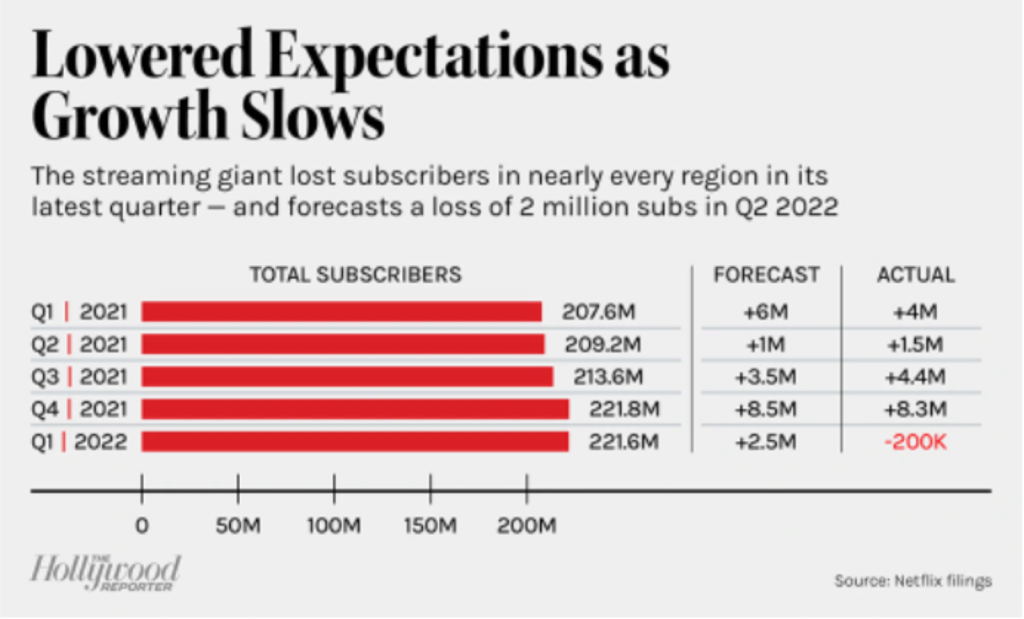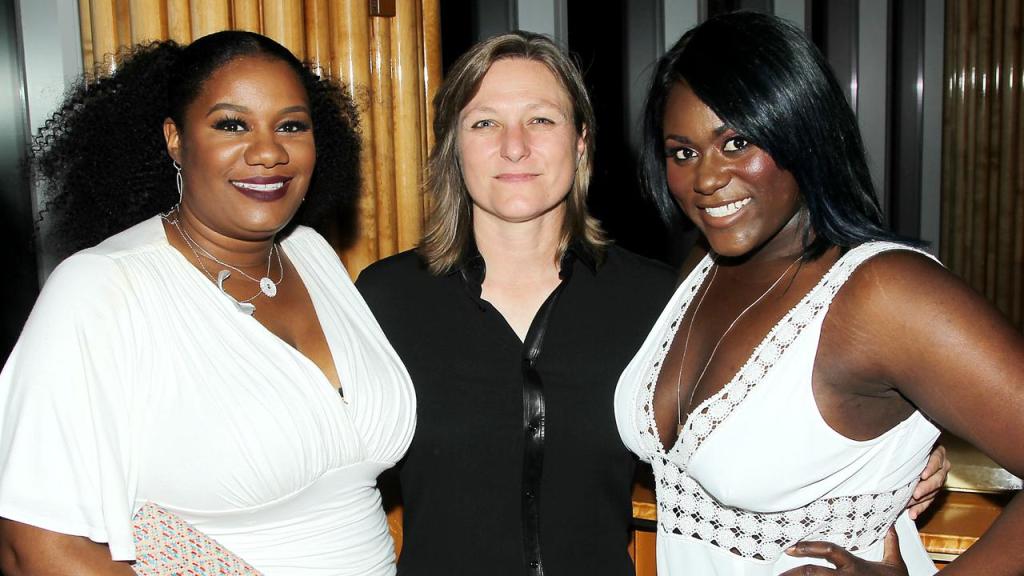I was reading this morning about the backlash to one of Netflix’s latest projects, Luckiest Girl Alive, produced by and starring Mila Kunis. Despite the fact that the film contains graphic depictions of a school shooting and gang rape, there is no clear warning of either. There is no indication in the trailer, for instance, that the film will contain these types of moments, and many reviews do not mention them, despite the fact that these scenes are central to the film, leaving some viewers triggered by the horrifying scenes. Based on Jessica Knoll’s best-selling novel, the film follows magazine writer Ani (Kunis) whose success is threatened by a true crime documentary that details her traumatic experiences in high school (the shooting and the gang rape).
I haven’t watched this movie, and I have no plans to do so — because I’ve canceled my Netflix subscription. And I’m not the only one. Streaming platforms (which appear to be breeding like rabbits) are freaked out by Netflix’s subscriber losses, seeing it as boding poorly for the industry as a whole. I would argue, however, that yes, while part of the problem is the sheer volume of streaming platforms, another crucial issue that does not get enough attention is the rapidly diminishing quality of Netflix product. While I cannot speak to the quality of Luckiest Girl Alive, because I won’t be watching it, the current controversy does speak to Netflix’s growing sloppiness.

A few months ago, TechCrunch reported that during April, May, and June of 2022, Netflix reported a loss of 970,000 subscribers, the largest quarterly loss in the company’s history, forcing the company to announce a cheaper ad-supported subscription plan (I’m sure that will go great), lay off employees, partner with Microsoft, and slash its animation department. The party line to explain these losses, as laid out by the BBC, is that “Rivals are challenging its dominance, while price hikes have taken a toll.”
Sure, the proliferation of streaming platforms is going to cannibalize viewers, however, buried in the same BBC article is what I think is far more important. When asked why Netflix hasn’t lost as many subscribers as it feared it might, Reed Hastings, co-founder, chairman, and co-chief executive office of Netflix, said: “If there was a single thing, we might say Stranger Things.”
Which, of course, begs the question — if Netflix knows that quality original content is what keeps subscribers subscribing, why not keep making quality original content?

And this is where we get to Cindy Holland. Ted Sarandos’ first hire, Holland was instrumental in launching original content on Netflix, spearheading shows like House of Cards, Orange is the New Black, and Stranger Things. One of her most recent commissions was the award-winning show The Queen’s Gambit. Industry insiders often argue that it was Holland who got these shows made, not Ted Sarandos, who was the chief content officer at Netflix at the time. She was also recognized for nurturing relationships with talent, encouraging passion projects, and taking time to offer thoughtful development notes, Kim Masters writes in an article about the power clash behind Netflix’s decline.
“It was Holland rather than Ted Sarandos, then chief content officer, who gave Netflix its profile as a home to buzzy, quality shows,” Masters continues, quoting a source who claimed Netflix had been “built on the back of Cindy Holland’s taste. I could give you a list of names of people who would lie down on railroad tracks for her. Ted is a fan (of content), not a picker.” Masters argues, as well, that Holland advised Sarandos not to pursue comedy specials from Dave Chappelle, predicting the internal turmoil and negative publicity, which did, of course, happen.
“When we started original series, we sort of looked at ourselves as the alternative to the traditional studio overall deal model,” Holland told Variety in the summer of 2019. She recognized what the future of streaming would look like, as legacy studios would also want to create their own streaming platforms, thus reclaiming their content from Netflix as well as providing more competition. In order for Netflix to compete, they could not rely on other people’s content to attract subscribers. Original programming was the way of the future.
And yet, in September 2020, Holland was ousted after 19 years, shortly after Sarandos was named Netflix’s co-CEO and Bela Bajaria (former CBS and Universal television executive before a move to Netflix, first for unscripted shows and then to its global executive team expanding the selection of local-language originals) was named the sole head of Netflix television. The shift was complete from quality content to quantity content. Netflix and Bajaria believed (and clearly still believe) that in order to compete with the loss of shows like Friends and The Office, Netflix had to flood its users with offerings, thereby spending less money (and less creativity) per show.
According to Masters, “A former insider says Sarandos’ volume strategy began to prove destructive to the culture and quality of the service’s offerings…[S]everal creators believe Netflix lost much its early cachet by over-rotating to less expensive, less curated and less compelling – or the company might say broader – fare that simultaneously overwhelmed and underwhelmed some subscribers.”
The power play first came to a head when Holland passed on the television series Insatiable, which Bajaria opted to order anyway. It would be widely-panned (it sits at 11% on Rotten Tomatoes) and hit with a fat-shaming scandal. This decision, to greenlight a show that others at Netflix had passed on, started “demoralization and chaos” at Netflix, describes a prominent Netflix supplier. And yet, because viewers liked Insatiable enough to warrant a second season, Sarandos felt encouraged to look to Bela, in the words of one of Masters’ sources, “as what the company should be.”
The chaos continued as the flood of shows met the streaming platform. Even Netflix executives began to express concern, reports Masters, about the rush of mediocre content, asking each other when enough would be enough. Holland, too, expressed concern about the lack of curation and quality control, supposedly one of the few to stand up to Sarandos (which might be one of the reasons she was fired two months after he was promoted). The strategy, at the time, was to throw things at the wall and hope one in ten stuck. Despite Holland’s track record and the role she played in establishing Netflix as a producer of quality content, Sarandos seemed to prefer the quantity strategy, eventually ousting Holland in favor of Bajaria, who is now the head of all TV content as of September 2022.
To be fair, Bajaria has had hits — such as You (after it was dropped by Lifetime), Squid Game, and Lupin. And the blame for this cannot be put on her shoulders (the fish rots from the head, right?) since she is just acting as instructed by the higher-ups, such as Hastings and Sarandos. Another insider quoted by Masters says that Bela and Cindy were “pitted against each other.” Who can say without being in the room? But during production of The Queen’s Gambit, it was supposedly mocked in the halls of Netflix as “Holland’s folly” for being overly expensive. Sources claim “Bajaria and her staff were dismissive and even unpleasant to the team that worked on it,” and yet, once the series became a smash success, Bajaria “was routinely credited for it in the media.”
I’m not a Hollywood insider. I don’t have access to Kim Masters or her sources. But what I do know is that there is nothing I want to watch on Netflix anymore.

Recent Comments